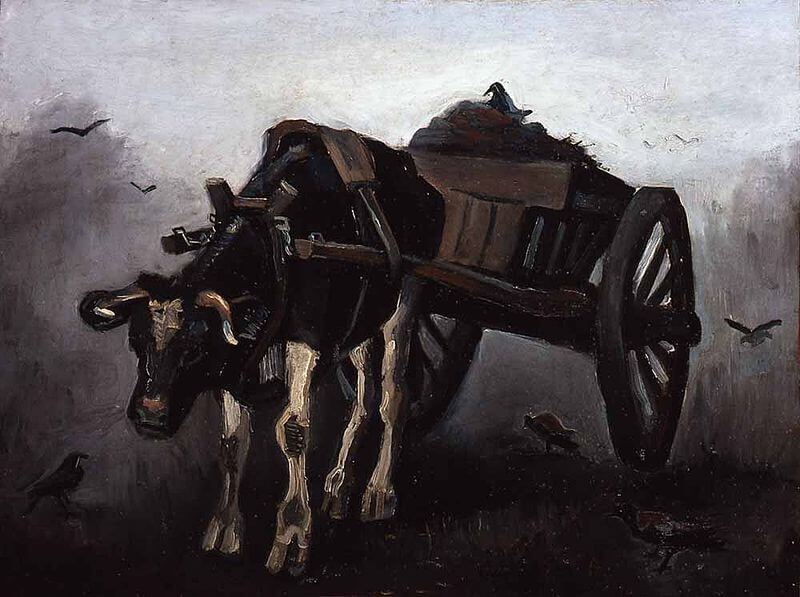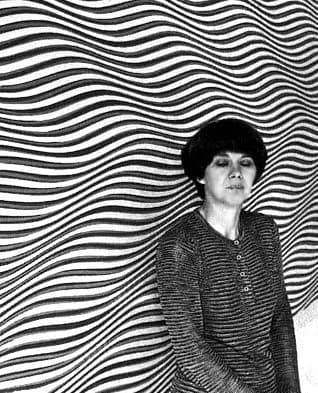The art minute
Black and white abstract painting
Abstract paintings were created at the cusp of the 20th century. Abstract art uses a visual language of shape, form, line, and color to create pieces that may exist independently from conventional visual references in the world.
This means they do not depict specific places, people, or things in the natural world either in their natural or exaggerated form. Instead, it depicts the departure from reality and imagery.
Abstract art is mainly about exploring form and color. Therefore, color is a significant part of abstract art. Black and white are particularly prevalent in abstract painting. Many prominent abstract painters have used these two colors to create a black and white painting context. In the absence of precise representations of imagery (as is the case with abstract art), black and white absract painting is a powerful medium for representing strong emotions and connecting with audiences.
This means they do not depict specific places, people, or things in the natural world either in their natural or exaggerated form. Instead, it depicts the departure from reality and imagery.
Abstract art is mainly about exploring form and color. Therefore, color is a significant part of abstract art. Black and white are particularly prevalent in abstract painting. Many prominent abstract painters have used these two colors to create a black and white painting context. In the absence of precise representations of imagery (as is the case with abstract art), black and white absract painting is a powerful medium for representing strong emotions and connecting with audiences.
1.png)
The symbolism of the black and white painting
In the art industry, colors have a lot of symbolism, depending on the cultures, religions, and history. Black and white are primarily symbolic. Conventional and contemporary artists use the colors black and white for various representations. Below are some meanings of black and white colors in paintings:
More often than not, the black and white painting represents opposites. In most cases, white represents pure light, and black represents darkness. Famous artists like Marinus Boezem and Jorge Baldessari used black and white coloration in their paintings to represent contrasting ideas or parts of nature.
In many cultures, white is seen as the color of innocence, purity, peace, and loyalty. For instance, white clothing and decoration symbolize joy around births, baptism, and weddings. Artists like Maria Muller and Hinke Schreuders have used white as a symbol of purity and innocence in many of their works. However, this was mostly in white cultures. In African cultures, white is looked at as a symbol of mourning and death. The symbolism of colors differs depending on the context and the locations.
On the other hand, in many cultures, black is seen as a symbol of death, mourning, and things that need to be concealed. Many cultures and religions also view black as a representation of darkness and, in some cases, power and prestige. Artists like Bart Hess have successfully used black to represent the hidden sensual side of human nature.
The contrast between the two colors makes black and white paintings the incredible phenomenon they are.
More often than not, the black and white painting represents opposites. In most cases, white represents pure light, and black represents darkness. Famous artists like Marinus Boezem and Jorge Baldessari used black and white coloration in their paintings to represent contrasting ideas or parts of nature.
In many cultures, white is seen as the color of innocence, purity, peace, and loyalty. For instance, white clothing and decoration symbolize joy around births, baptism, and weddings. Artists like Maria Muller and Hinke Schreuders have used white as a symbol of purity and innocence in many of their works. However, this was mostly in white cultures. In African cultures, white is looked at as a symbol of mourning and death. The symbolism of colors differs depending on the context and the locations.
On the other hand, in many cultures, black is seen as a symbol of death, mourning, and things that need to be concealed. Many cultures and religions also view black as a representation of darkness and, in some cases, power and prestige. Artists like Bart Hess have successfully used black to represent the hidden sensual side of human nature.
The contrast between the two colors makes black and white paintings the incredible phenomenon they are.
Top Five well-known black and white painting
Numerous painters over the years, both conventional and contemporary, have created iconic black and white paintings. The following are five of the most iconic and well-known black and white paintings in history;
Pablo Picasso’s Guernica
Picasso is perhaps one of the most popular painters in history. His abstract works have been viewed and praised by millions of people worldwide. One of his most celebrated works is the Guernica. It is a black and white abstract painting depicting the horrendous bombing operation hurled by the Nazis in Germany before the eruption of World War II. The black and white painting emphasizes the amount of distraction caused by the war and the power of abhorrence and warfare. The black and white pigmentation emphasizes the nature of the war being evil and separates the good from the bad.
Van Gogh’s Cart with Black Ox
Van Gogh is a legend in the art industry. He could grasp the delicate basics of nature in a way that no one else could. His 1884 black and white composition called Cart with Black Ox is one of his most well-known black and white abstract paintings. He used black to represent the depressing nature of the hard physical labor that Oxen go through and white to represent the unique elements of the Ox.

Franz Kline’s Chief
The Chief is a black and white abstract painting by Frank Kline. It was fashioned in 1950 and is currently one of his most celebrated pieces. Kline explained that he put a lot of effort into painting both colors represented on the canvas instead of allowing the void canvas spaces to serve as the white portions. This is why this piece stands out.
Bridget Riley’s Movement in Squares
This black and white painting is considered one of the most celebrated and renowned optical illusion works. Bridget Riley is also considered one of the most famous painters in the optical illusion era in the 1960s. Riley masterfully used black and white squares to represent optical illusion. The squares in the black and white painting seem to dip into a crease slowly. The illusion in the painting is accomplished by the modest manipulation of the girth of the square columns.

Georgia O’Keeffe’s Horse Skull with White Rose
This black and white art is perhaps one of O’Keeffe’s most famous works. She created this painting in 1931, after spending a lot of time in the deserts of Mexico. This black and white abtsract painting takes a dissimilar outlook on the natural discernment of objects like horse skulls and flowers. It explores the thin line between the presence or absence of life. The black and white pigmentation is also used to highlight the fragility of nature. It is among the most eminent black and white paintings of the modern era.
Conclusion
Black and white abtsract painting is not just a thing of the past. It is also a common phenomenon in modern art. Furthermore, there seems to be no sign that black and white art will cease being the phenomenon they are shortly.















